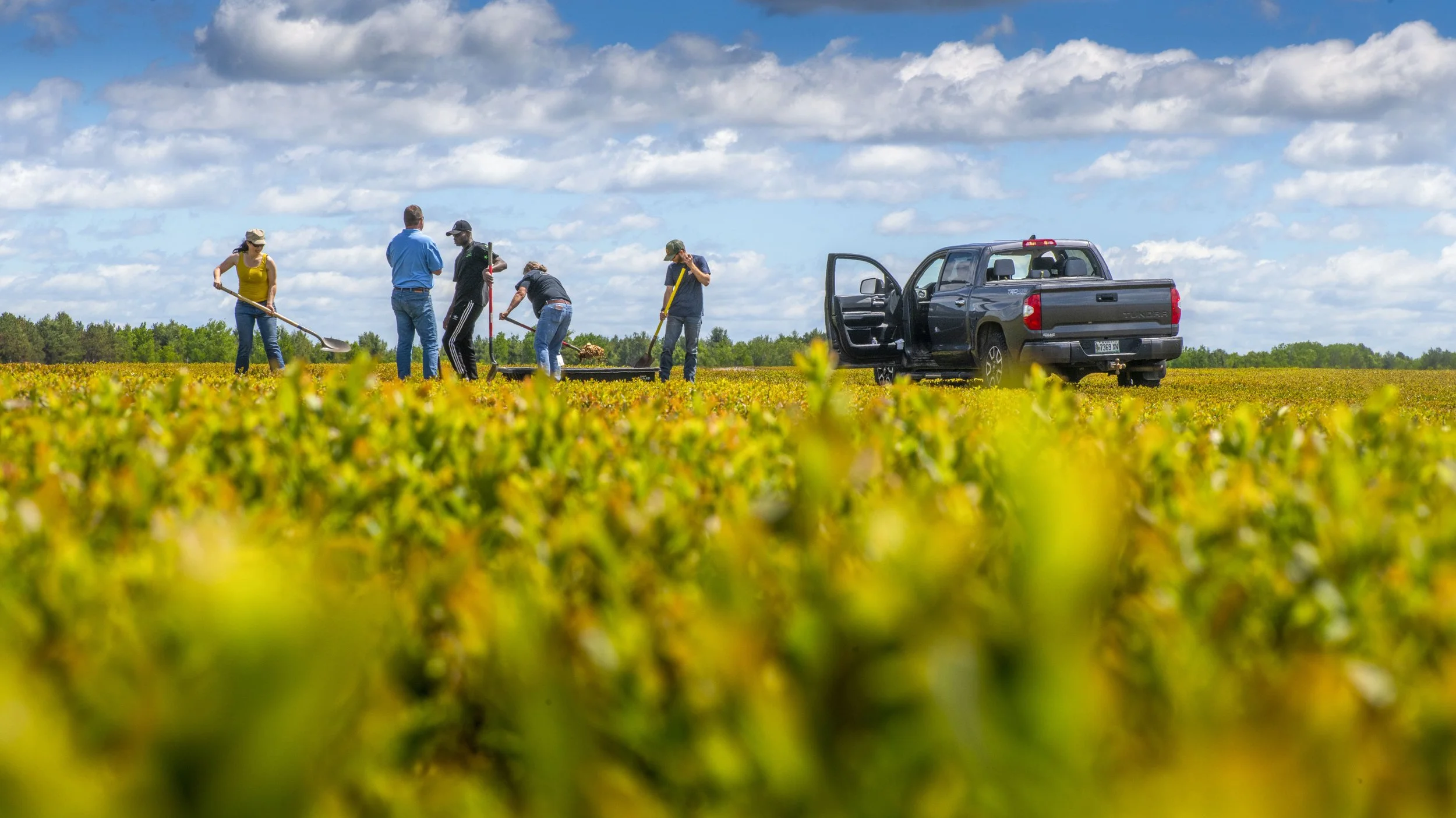From January 2021 to January 2022, a cohort of 37 vegetable and small fruit farmers and agricultural advisors from across the Northeast participated in the pilot version of CAMF.
Farmers and agricultural advisors collaborated in pairs or groups of three, engaging in workshops, virtual presentations, risk assessments, economic analysis, and demonstrations and field trials on their farms. Workshops featured presentations from subject matter experts on topics including climate change communication, adaptation and mitigation strategies, and climate impacts, among other topics. Fellows could also join drop-in presentations on topics like soil moisture monitoring, and farm-based research.
“We’ve always thought about soil and crop health, but now we’ll really think about the longer-term future of our farm, the resilience in the face of extreme weather events, and ways in which we can actually help mitigate climate change, even in some small way, as opposed to just adapt to it.”
- Stephen Lowe, Farmer Fellow (‘21-22)
Outcomes According to 34 Fellows
(17 farmer fellows, 13 agricultural advisor fellows, and 4 farmer/agricultural advisors)
12
Agricultural advisor fellows agreed or strongly agreed that their confidence in incorporating climate change issues into their programing has increased since the beginning of the program.
14
Agricultural advisors intend to use knowledge, attitudes, skills and/or awareness learned through this project in their educational activities and services for farmers.
14
Farmers reported changes in knowledge, attitudes, skills and/or awareness as a result of their participation.
13
Farmers reported that after the program, their confidence in addressing climate change on their farm increased.
15
Farmers reported making changes or adopting climate adaptation/mitigation practices after engaging in the program.
28
Fellows reported that hearing other fellows discussing their adaptation strategies made them think in a new way about climate adaptation strategies they could use on their farms or incorporate into their programs.
23
Fellows reported that the program helped them to identify resources to improve their ability to communicate about climate change.
“I feel better armed with information that helps me incorporate climate trend data into my conversations so it has gotten easier for me to say things to farmers, my family, colleagues about what’s happening without some of the inflection that can make this such a political issue.”
- Lisa McKeag, Agricultural Advisor Fellow (‘21-22)
Outreach Products by Fellows
2
Consultations
1
Tour
7
On-farm demonstrations
6
Workshop field days
22
Published press articles, newsletters
4
Curricula, factsheets or educational tools
34
Webinars / talks / presentations
4
Online trainings
5
Other educational activities*
* including testimony to the state legislature, monthly meetings with municipal officials and regional planning councils, board meetings with industry organizations, small group discussion sessions, using QR codes on products for sale at farmers markets and grocery stores linking to a website explaining farm practices.

